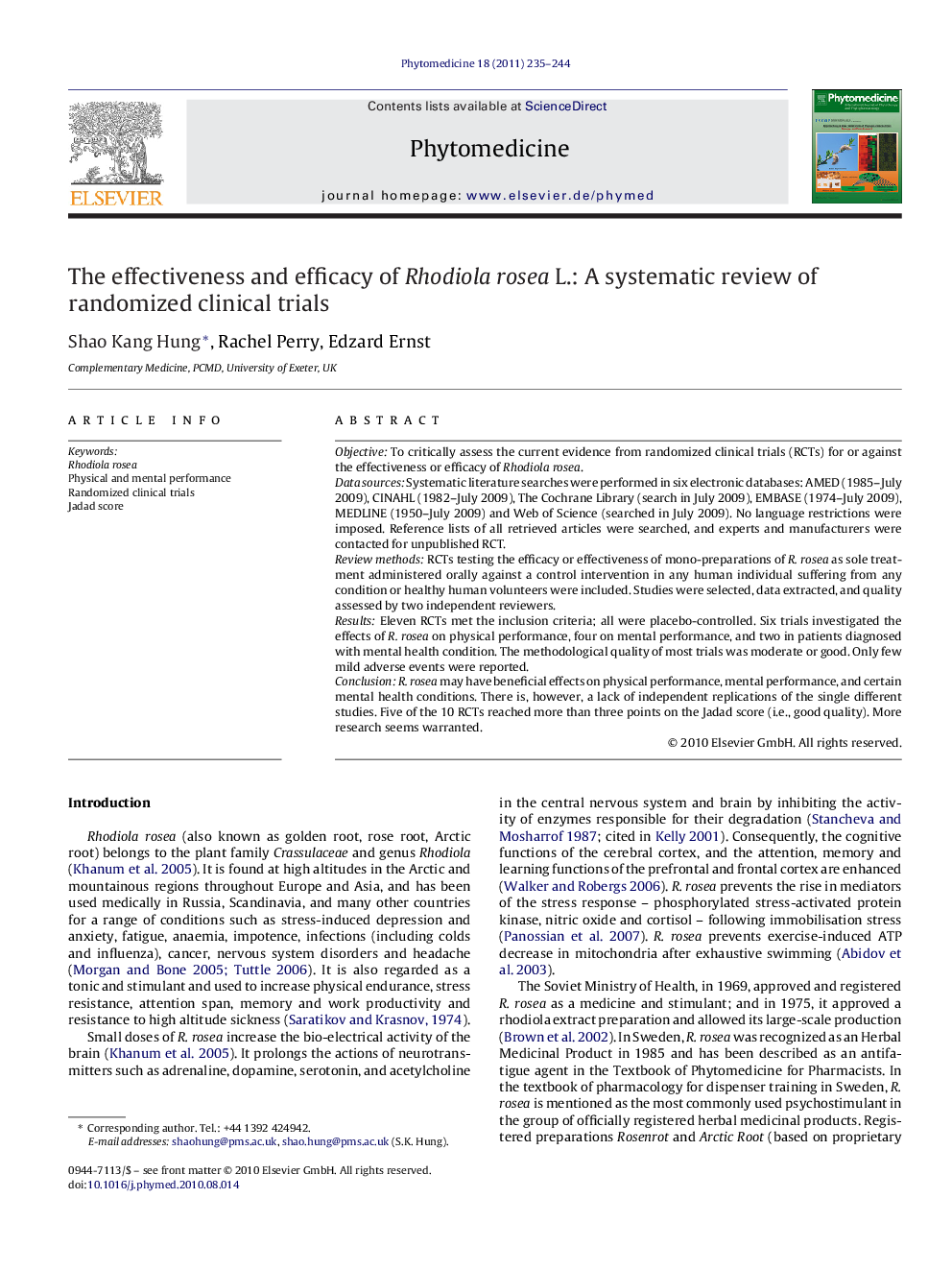| Article ID | Journal | Published Year | Pages | File Type |
|---|---|---|---|---|
| 2496872 | Phytomedicine | 2011 | 10 Pages |
ObjectiveTo critically assess the current evidence from randomized clinical trials (RCTs) for or against the effectiveness or efficacy of Rhodiola rosea.Data sourcesSystematic literature searches were performed in six electronic databases: AMED (1985–July 2009), CINAHL (1982–July 2009), The Cochrane Library (search in July 2009), EMBASE (1974–July 2009), MEDLINE (1950–July 2009) and Web of Science (searched in July 2009). No language restrictions were imposed. Reference lists of all retrieved articles were searched, and experts and manufacturers were contacted for unpublished RCT.Review methodsRCTs testing the efficacy or effectiveness of mono-preparations of R. rosea as sole treatment administered orally against a control intervention in any human individual suffering from any condition or healthy human volunteers were included. Studies were selected, data extracted, and quality assessed by two independent reviewers.ResultsEleven RCTs met the inclusion criteria; all were placebo-controlled. Six trials investigated the effects of R. rosea on physical performance, four on mental performance, and two in patients diagnosed with mental health condition. The methodological quality of most trials was moderate or good. Only few mild adverse events were reported.ConclusionR. rosea may have beneficial effects on physical performance, mental performance, and certain mental health conditions. There is, however, a lack of independent replications of the single different studies. Five of the 10 RCTs reached more than three points on the Jadad score (i.e., good quality). More research seems warranted.
